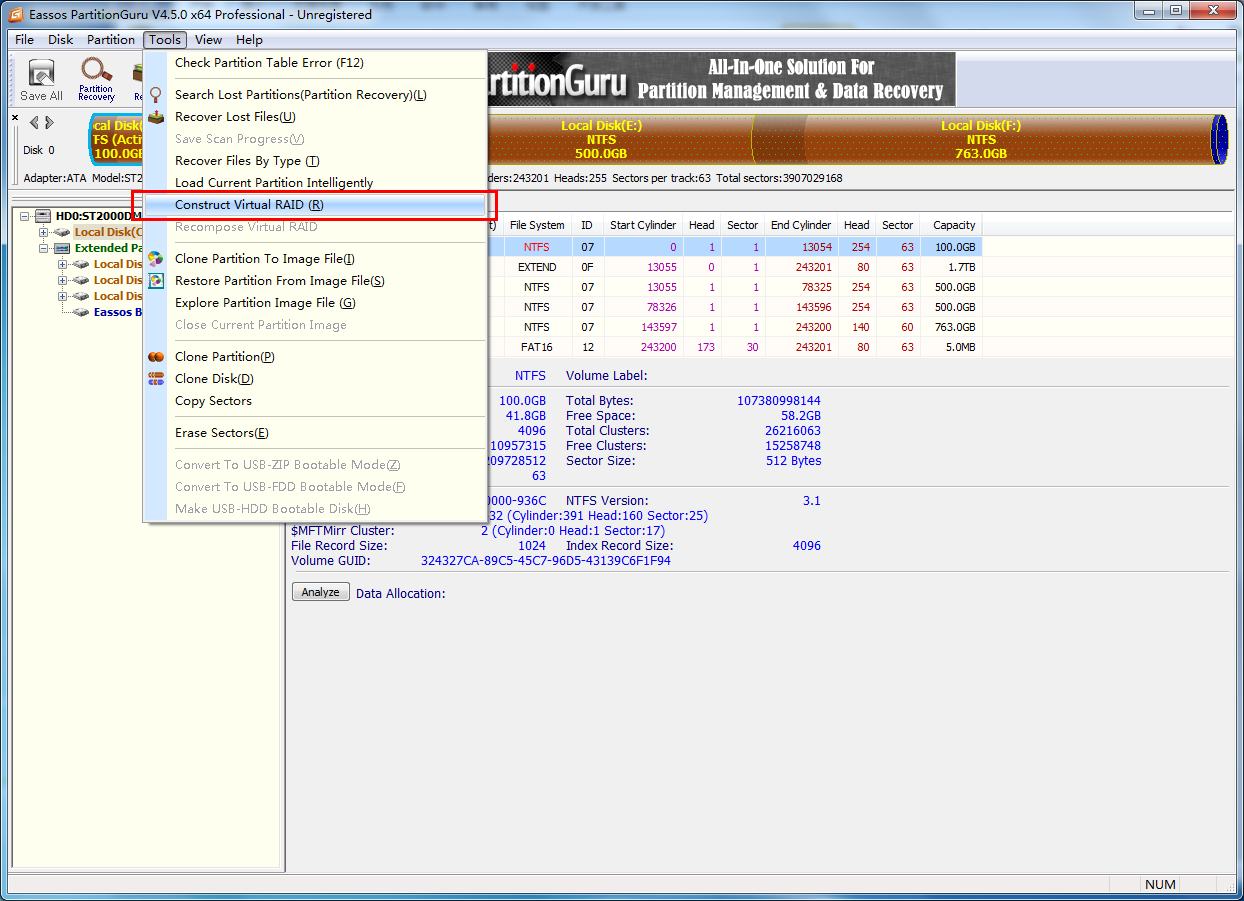What is RAID?
The term “RAID” stands for redundant array of independent disks which was originally redundant array of inexpensive disks. RAID is a storage technology that combines multiple disk drive components into a logical unit for the purposes of data redundancy and performance improvement.
Advantages of RAID
RAID is designed to improve performance and reliability and obtain larger capacity. Users don’t need to care how many disks form the RAID, for a RAID appears to the operating system to be one single logical hard disk. RAID technology possesses following advantages:
- Provide large disk space. 2TB hard drive is large enough to common users at present, which, however, is far from enough to enterprise users. Larger disk space can be created by RAID composing several hard drives, for instance, compose five 2TB hard drives to 10TB disk space via RAID 0.
- Fast speed. Being one of the most important parts of computer, hard drive develops quickly in capacity, and yet its speed improves slowly. RAID enables several hard drives to work at the same time, plus, these hard drive appears to be one hard drive logically, thus RAID reaches a speed that several or dozens of times of one single hard drive.
- Improved data security. The parity and mutual image backup provides fault tolerance and ensure data security and reliable.
RAID data recovery with PartitionGuru
PartitionGuru provides powerful data recovery functions for files recovery and partition as well as RAID data recovery, BitLocker drive recovery, etc. It can reconstruct virtual RAID when RAID disks go wrong, and then recover files and partitions from RAID disks just like from local disks.
To construct virtual raid, please follow the steps here: start PartitionGuru and then clisk the menu “Tool” to find the item “Construct Virtual RAID” as in the pictures below:

